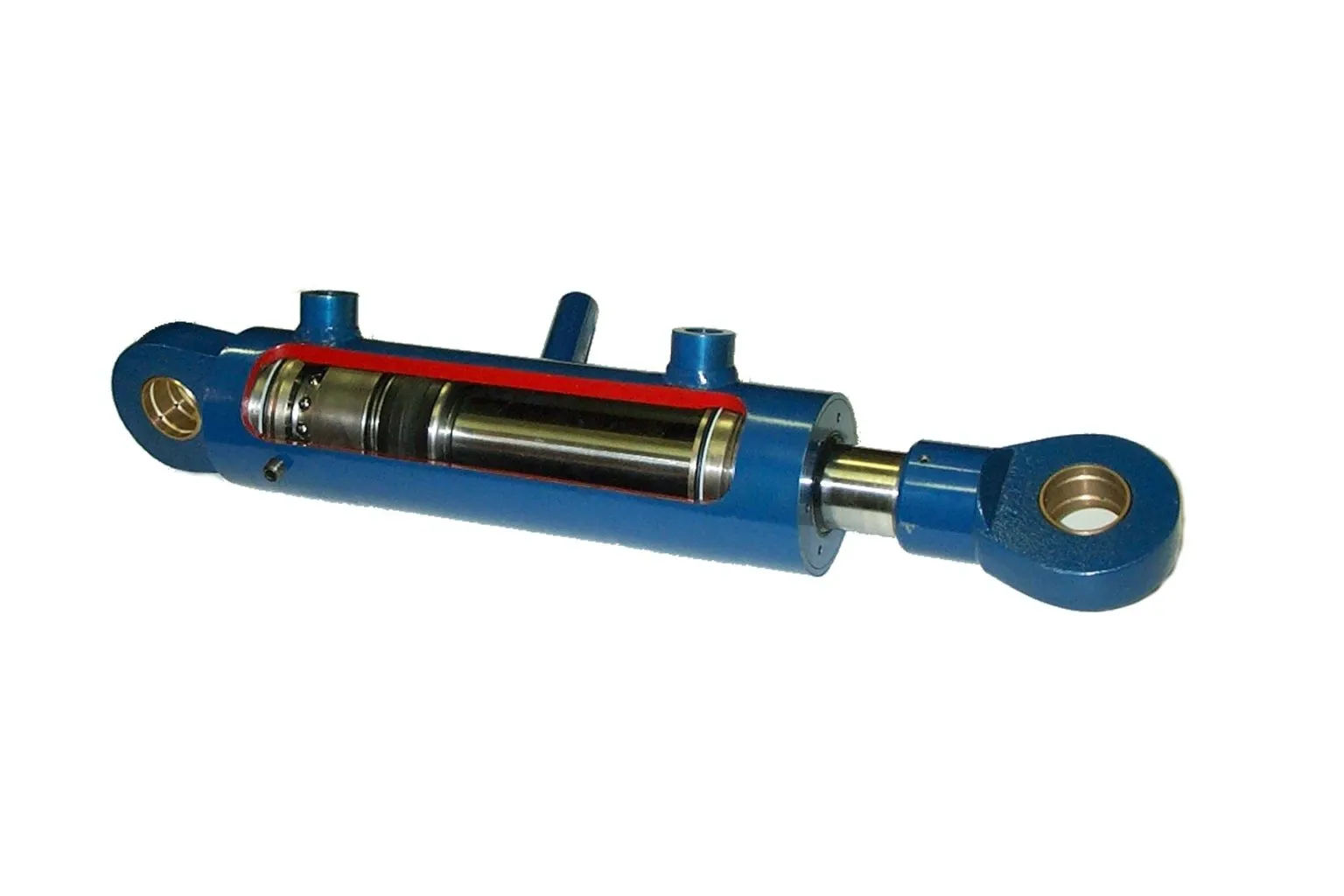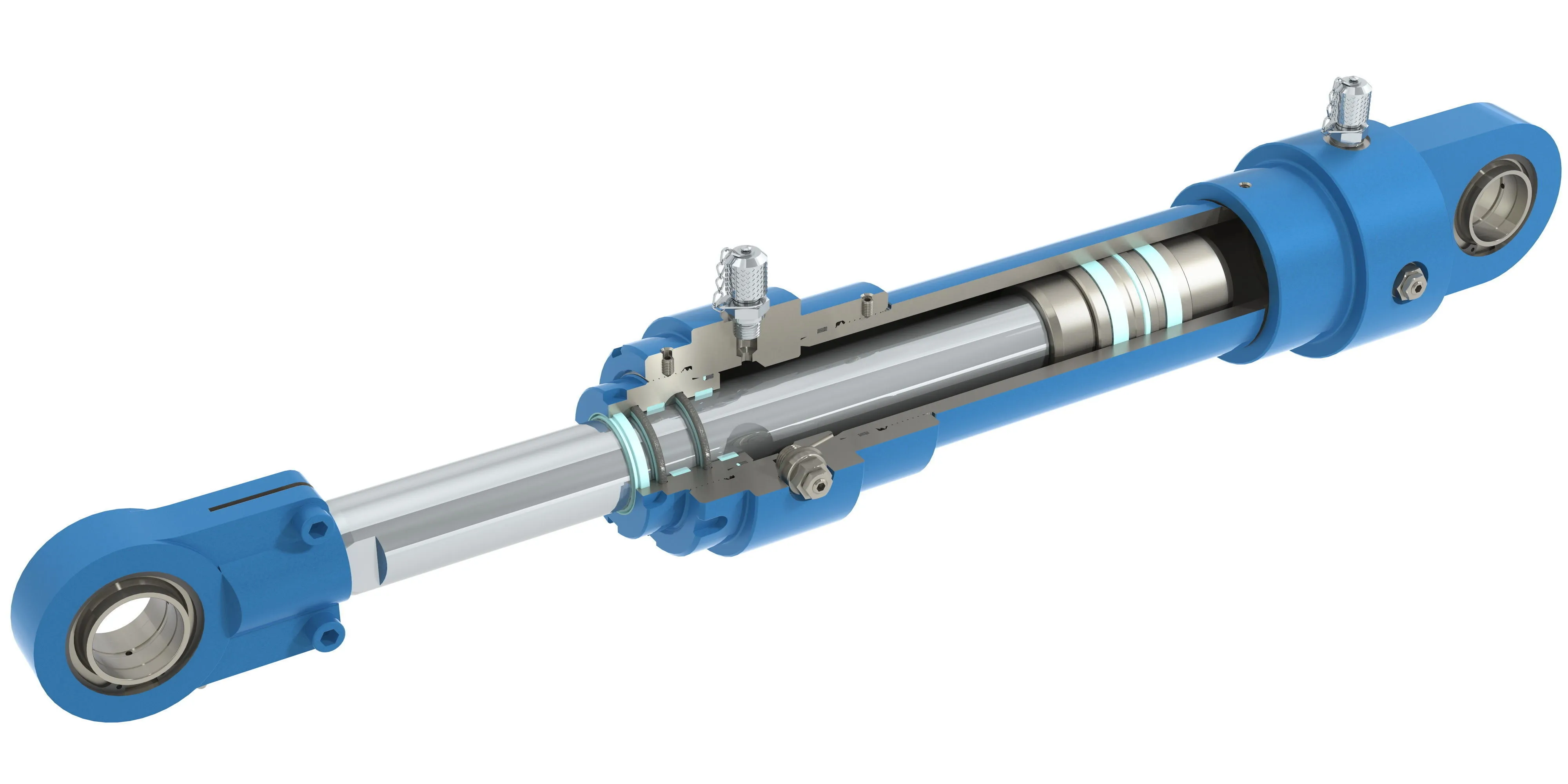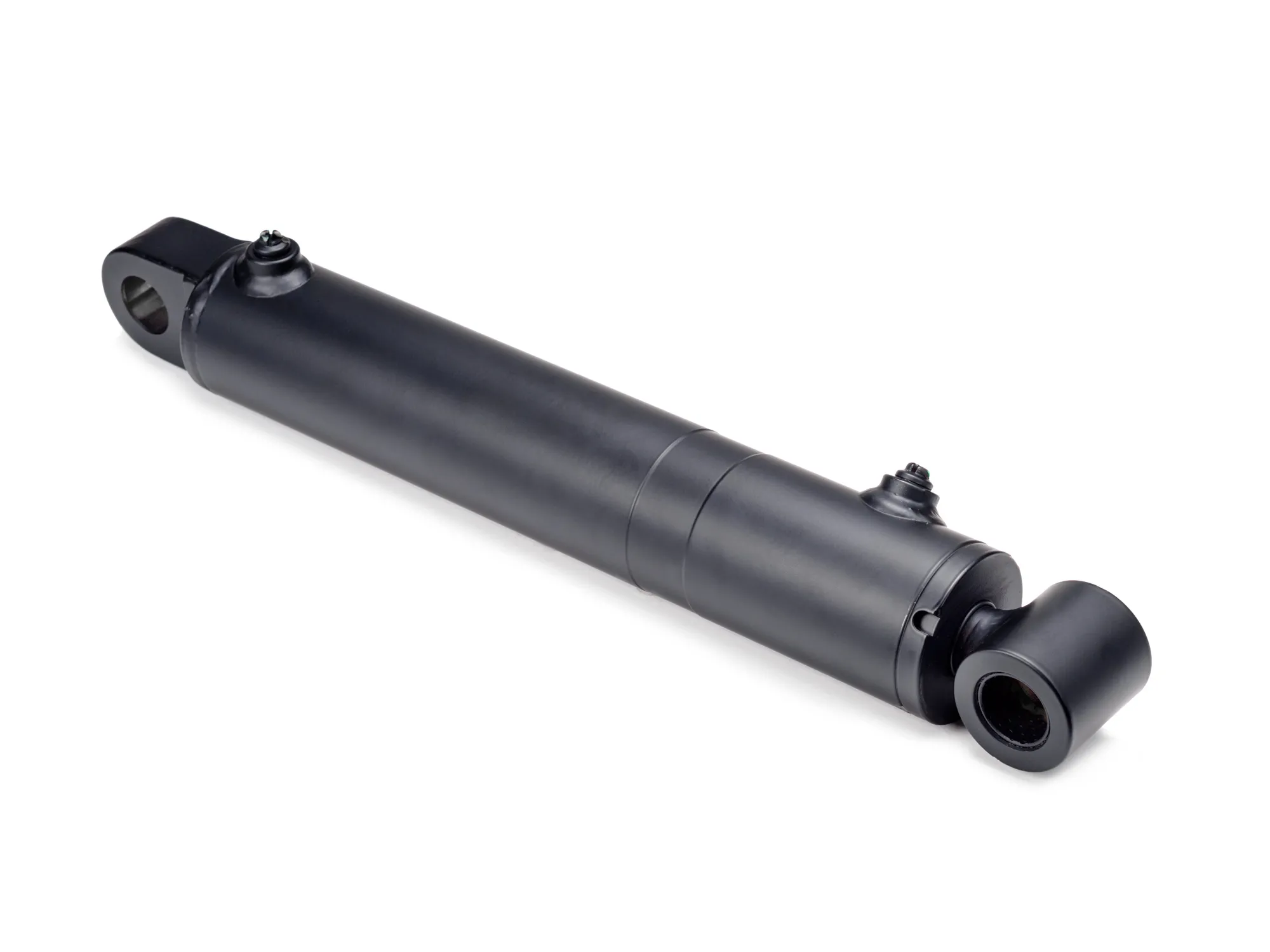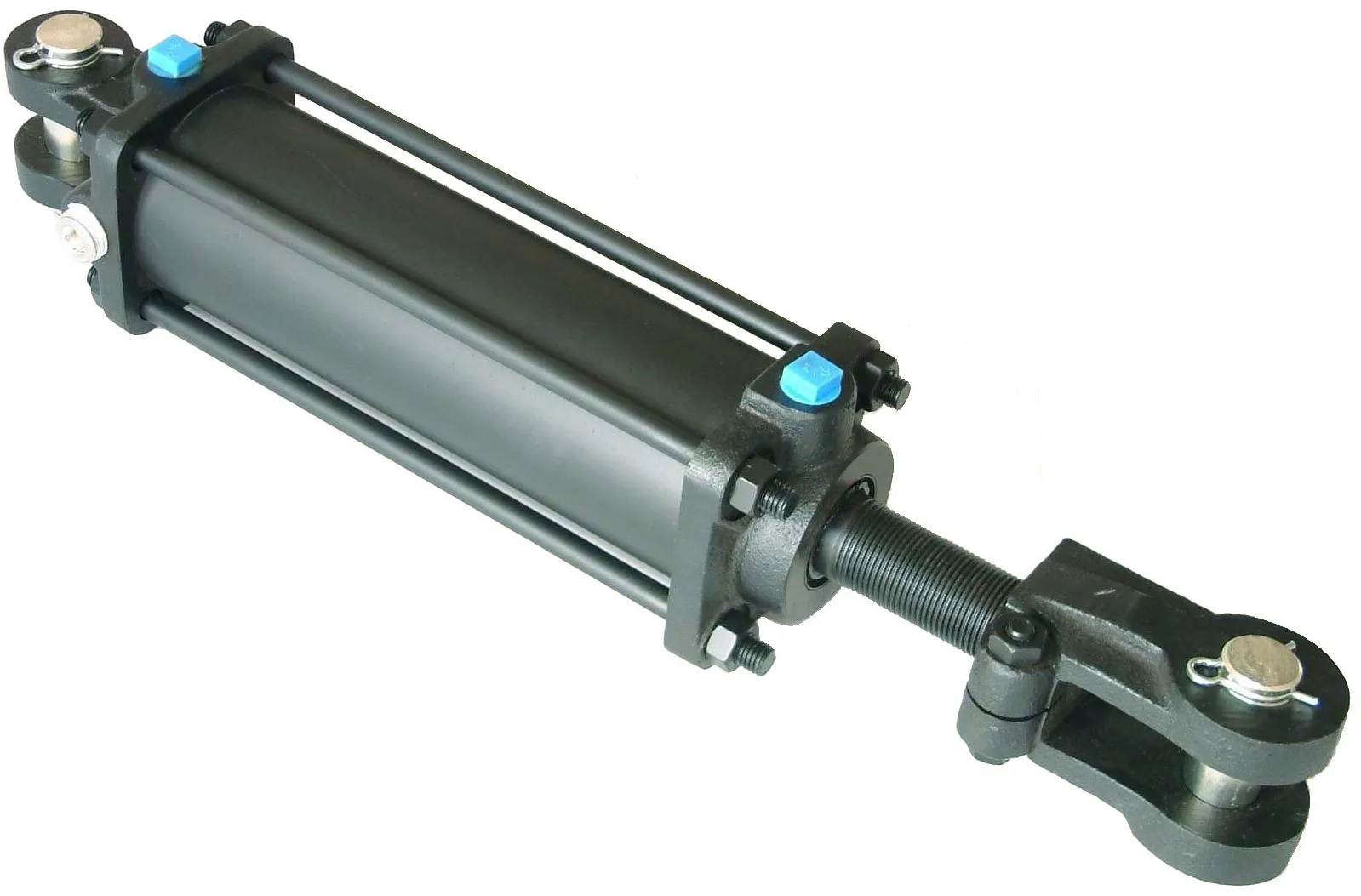Exploring the Spring-Return Single-Acting Hydraulic Cylinder

Introduction
In the world of hydraulic systems, the spring-return single-acting oil cylinder plays a crucial role. This hydraulic cylinder utilizes hydraulic oil to expand the piston, creating the necessary force for various applications. When the pressure is released, the built-in spring automatically retracts the piston, providing a seamless operation.
Design and Construction Characteristics

Single-Acting Structure
The spring-return single-acting hydraulic cylinder operates in only one direction through the hydraulic oil pressure. The return movement relies on the integrated spring mechanism.

Spring Selection
Choosing the appropriate spring is essential to ensure a quick and complete reset after the hydraulic oil pressure is released. This selection impacts the efficiency and reliability of the system.
Sealing Design
High-quality sealing materials are utilized to prevent hydraulic oil leakage, ensuring the safety and effectiveness of the hydraulic cylinder.
Strength and Durability
The material selection for the construction of the spring-return single-acting hydraulic cylinder must consider the ability to withstand high pressure and impact. Typically, high-strength steel is used for durability.
Construction and Assembly Process
Assembly Process
Precision is key during the assembly process to ensure the seamless operation of the hydraulic cylinder. The coordination of various components, especially the piston and cylinder block, must be precise to reduce friction and wear.
Welding and Connection
Strong welding and mechanical connections are crucial to prevent oil leakage or breakage under high pressure conditions.
Testing and Debugging
After assembly, rigorous pressure testing and functional testing are conducted to verify the proper operation of the hydraulic cylinder in real-world scenarios.
Working Principle
Single-Acting Mechanism
When hydraulic oil is pumped into the cylinder, it drives the piston outward against the load. Upon pressure release, the spring mechanism retracts the piston to its initial position.
Types and Configurations
Spring-Return Single-Acting Hydraulic Cylinder Types
There are three main types of spring-return single-acting hydraulic cylinders, each with unique configurations to suit different applications.
Key Benefits
Safety – Automatic Reset
The automatic reset feature enhances operational safety by reducing the risk of accidental drops or loss of control.
Simplicity – Simple Design
The straightforward structure of the hydraulic cylinder ensures ease of understanding, operation, and maintenance.
Cost-Effective – Economical and Practical
Spring-return single-acting hydraulic cylinders offer a cost-effective solution compared to complex double-acting cylinders, suitable for various applications.
Application Scenarios
Industrial Machinery – Press
These cylinders are utilized in mechanical pressing operations to improve production efficiency.
Automotive Industry – Automotive Maintenance
Hydraulic lifts use spring-return hydraulic cylinders for lifting and supporting vehicles during maintenance tasks.
Design Considerations and Selection Criteria
Bearing Capacity
The hydraulic cylinder’s bearing capacity is a critical consideration for the design and selection process.
Sealing and Durability
High-quality seals and durable materials are essential for preventing oil leakage and ensuring the long-term efficiency of the hydraulic cylinder.
Sealing and Lubrication
Seal Types
Piston seals, rod seals, and high-quality wear-resistant materials are used to enhance the sealing properties of the hydraulic cylinder.
Lubrication
Regularly filling the hydraulic cylinder with the appropriate amount of hydraulic oil is crucial for proper lubrication and maintenance.
Preventive Maintenance
Regular Inspection
Implementing regular inspections and preventive maintenance measures can prolong the lifespan of the hydraulic cylinder.
Proper Lubrication
Ensuring proper lubrication is essential for the smooth operation and longevity of the hydraulic cylinder.
Installation Guide
Proper installation of the hydraulic cylinder is crucial for optimal performance. Follow the manufacturer’s guidelines for a seamless installation process.
Fault Diagnosis and Common Problems
Identifying and resolving common issues with the hydraulic cylinder is essential for maintaining its efficiency and functionality.
Unit Power
The unit power of the hydraulic system directly impacts its performance and operational capabilities. Various factors, such as hydraulic system pressure and piston area, influence the unit power of the hydraulic cylinder.
Optimizing Hydraulic Power Unit
Optimizing the power unit of the spring-return single-acting hydraulic cylinder can lead to improved efficiency, energy savings, and enhanced reliability.

FAQs
How does the spring mechanism work in this type of cylinder?
The spring mechanism in the cylinder automatically retracts the piston when hydraulic pressure is released, ensuring smooth operation.
What are the main applications of spring-return single-acting hydraulic cylinders?
These cylinders are commonly used in industrial machinery, automotive maintenance, and agricultural equipment for various hydraulic applications.
What are the advantages of using a spring-return design?
The spring-return design offers automatic reset functionality, simplicity, cost-effectiveness, and flexibility in operation for hydraulic systems.
Long-Tail Keywords
1. “Spring-Return Single-Acting Hydraulic Cylinder Maintenance Guide”
2. “Optimizing Efficiency with Spring-Return Single-Acting Hydraulic Cylinder”
3. “Enhancing Safety Measures in Hydraulic Systems”
Our Company
We are a leading hydraulic cylinder replacement manufacturer, offering a comprehensive product line for domestic and international markets. With a focus on professionalism, international certifications, customized services, advanced production equipment, and reliable after-sales support, we aim to exceed customer expectations.
Author: lyl
